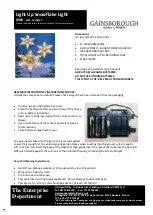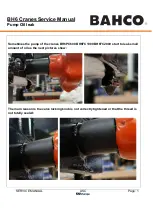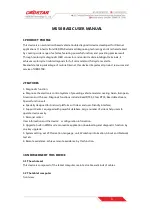
MetCam Technical Manual
1
Technical Note
MetCam Ethernet Cable Wiring Instructions
June 3, 2021
MetCam uses an Ethernet cable connection as one of its outputs.
The connection with the MetCam needs to be realized by a straight through cable.
Ethernet cables can be wired as straight through or crossover.
A straight through cable is a type of twisted pair cable that is used in local area networks to connect a computer to a
network hub such as a router. This type of cable is also sometimes called a patch cable.
On a straight through cable, the wired pins match. Straight through cable use one wiring standard: both ends use T568A
wiring standard or both ends use T568B wiring standard.
The following figure shows the wiring schemes of both standards.
The cable supporting this type of connection will follow the specifications of CAT5E; it needs to include (at least) 4 twisted
pairs with 100 Ohm differential impedance per pair and an additional pair
for power.
In sites where 4-20 infrastructure is implemented, an additional pair for this
interface should be available as well in the cable (total 6 pairs at least).
The pitch of the twisted pairs, on a CAT5E cable, is shown in the table on
the right.
If the cable used will not be a CAT5E cable it is probable that the twist pitch will be identical for all cable pairs.
For best performance, look for a cable with some intermediate value in the range 50
– 70 turns per meter.
If the cable used is not a standard CAT5E, the color code of the pairs is of less significance.






















